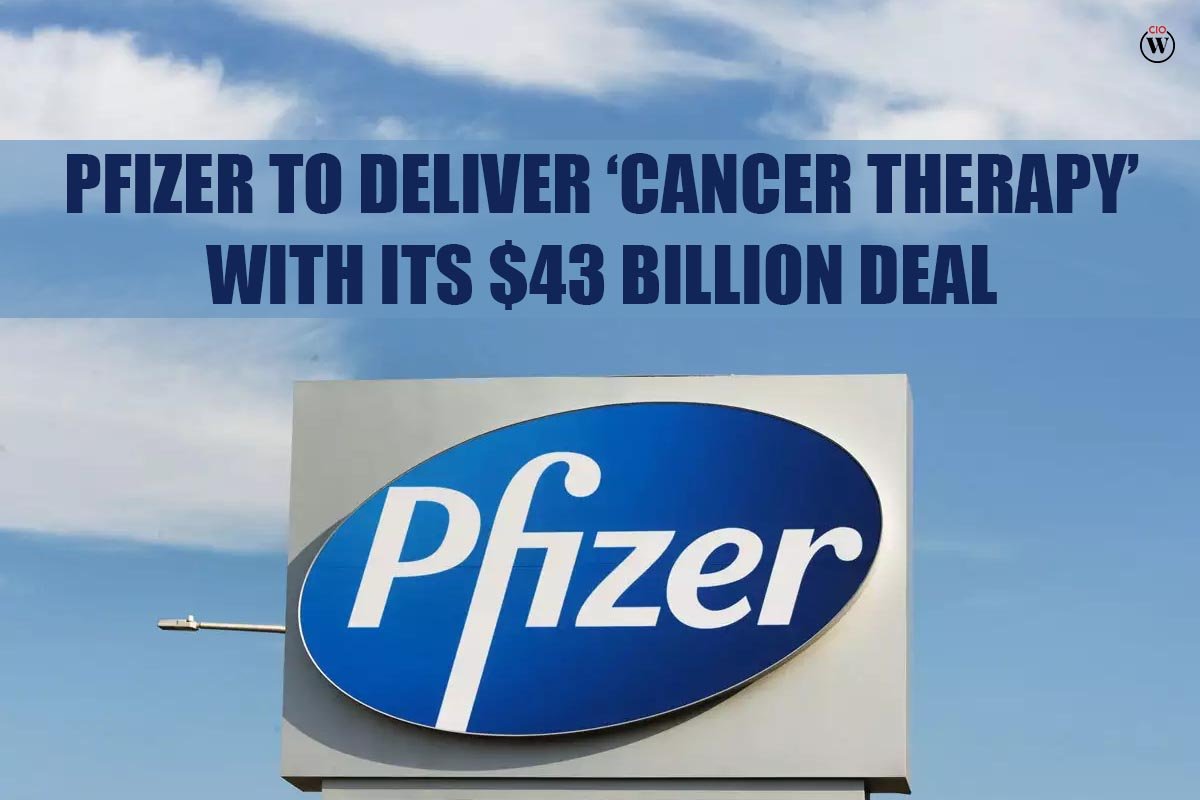Pfizer CEO Albert Bourla made an exciting announcement on Monday talking to CNBC regarding the company’s ability to deliver Seagen’s cancer therapy to the world on an unprecedented scale, following their $43 billion acquisition. Bourla said that the acquisition would allow Pfizer to add value to what Seagen is bringing, and enable them to deliver cancer therapy at a scale that has never been seen before.
What is Seagen?
Seagen is a leading developer of medicine called antibody-drug conjugates (ADCs), which are designed to kill cancer cells while sparing healthy ones. ADCs use antibodies to deliver small molecule drugs directly to a tumor site, which may reduce side effects and offer greater efficacy, according to Seagen’s website.
Bourla compared ADCs to the successful mRNA technology used in the development of Covid-19 vaccines. He called ADCs “one of the greatest technologies to battle cancer” and likened them to the mRNA technology used as a vehicle to deliver instructions to cells in the Covid vaccines. Bourla said that ADCs are “turbo-charged guided missiles that are attacking the cancer cells and can make a huge difference.”
Seagen will expand Pfizer’s cancer treatment portfolio, bringing four approved cancer therapies with combined sales of nearly $2 billion in 2022. Seagen’s top-selling Adcetris, which treats lymph system cancers, brought in $839 million in sales last year. That’s a 19% increase over the previous year, according to Seagen’s latest earnings release. Sales of Padcev, a treatment for cancers of the urinary tract, also grew 33% last year to $451 million, according to the company.
Challenging Environment
Pfizer expects antitrust regulators to scrutinize the deal closely due to its size, but Bourla expressed confidence that the company would have a clean case. Bourla said during the interview that the environment is always challenging and that they’re preparing for it, but he doesn’t expect any issues.
Cancer is a significant global health concern, accounting for nearly 10 million deaths in 2020, according to the World Health Organization. The American Cancer Society expects the global burden of cancer to grow significantly by 2040, as it forecasts new cases to grow to 27.5 million and cancer deaths to hit 16.3 million.
Bourla emphasized during the interview that cancer’s impact extends beyond the patients themselves. He said that family members, such as husbands, wives, daughters, and sons, will also be affected by cancer. Bourla believes that with this technology in their hands, they can make a big difference.
Pfizer offers $43 billion to buy cancer drugmaker Seagen
Thinking Long Term
The acquisition comes as Pfizer prepares for a decline in Covid-related sales this year, following the success of its vaccine and antiviral pill Paxlovid, which drove its 2022 revenue to a record $100 billion. The deal will help Pfizer sharpen its focus on oncology, which the company believes will be the industry’s biggest growth market.
Pfizer’s oncology division generated $12.1 billion in revenue last year, and the company has 24 approved treatments in the division, including breast cancer treatment Ibrance, according to a press release.
Scaling at New Levels
In conclusion, Pfizer’s acquisition of Seagen will allow the pharmaceutical giant to expand its cancer treatment portfolio and deliver cancer therapy on an unprecedented scale. Bourla believes that with this technology in their hands, they can make a big difference in the fight against cancer. The acquisition will also help Pfizer sharpen its focus on oncology, which is expected to be the industry’s biggest growth market.









